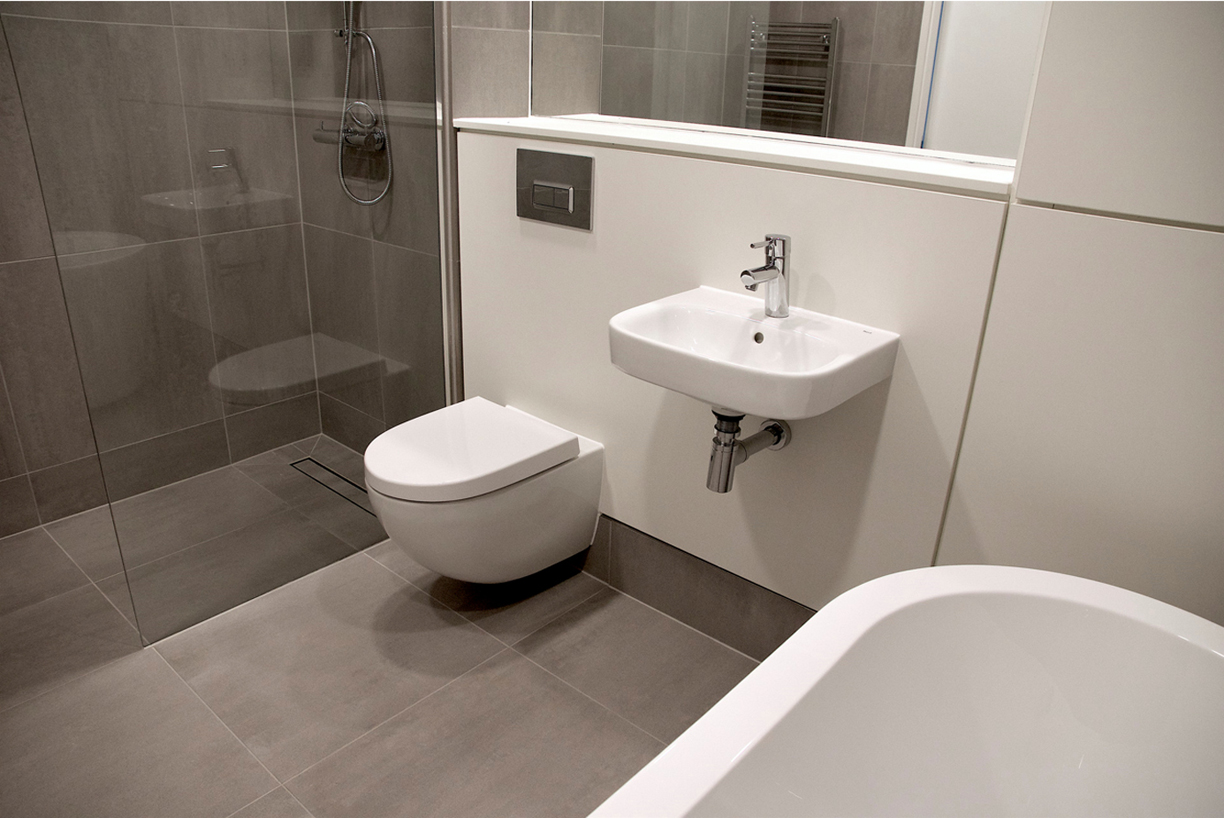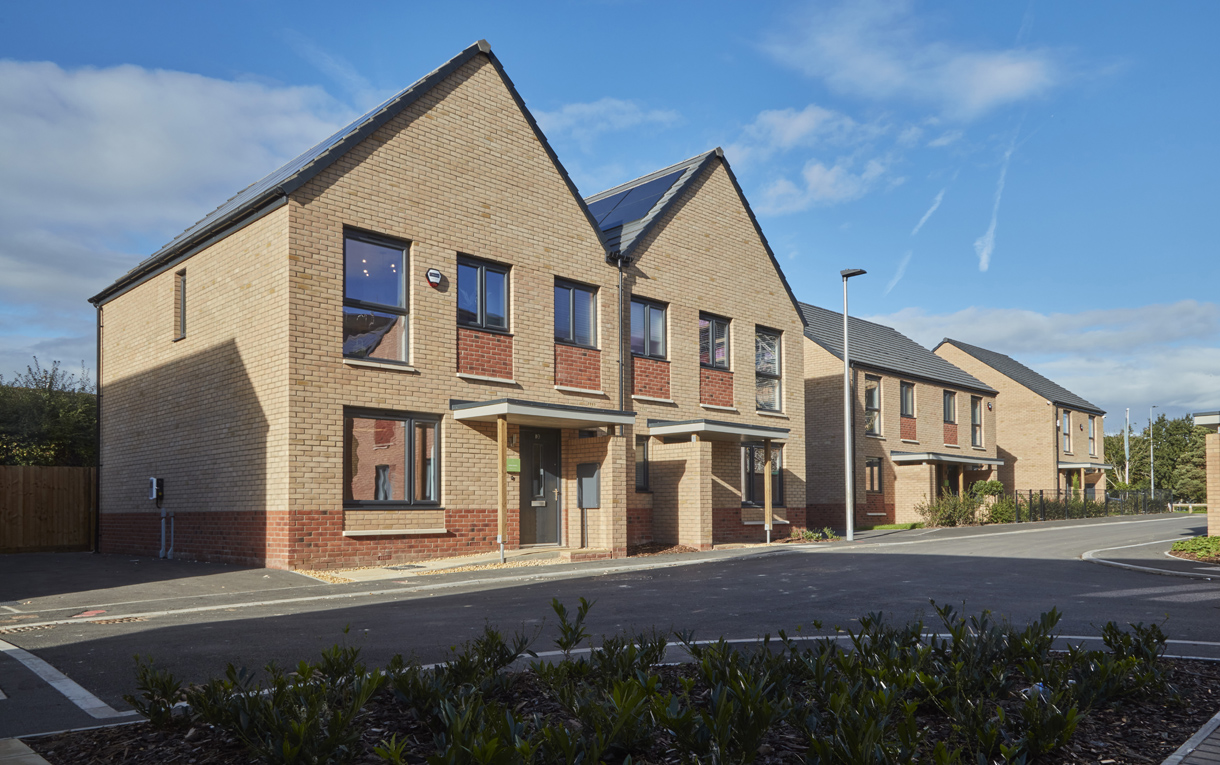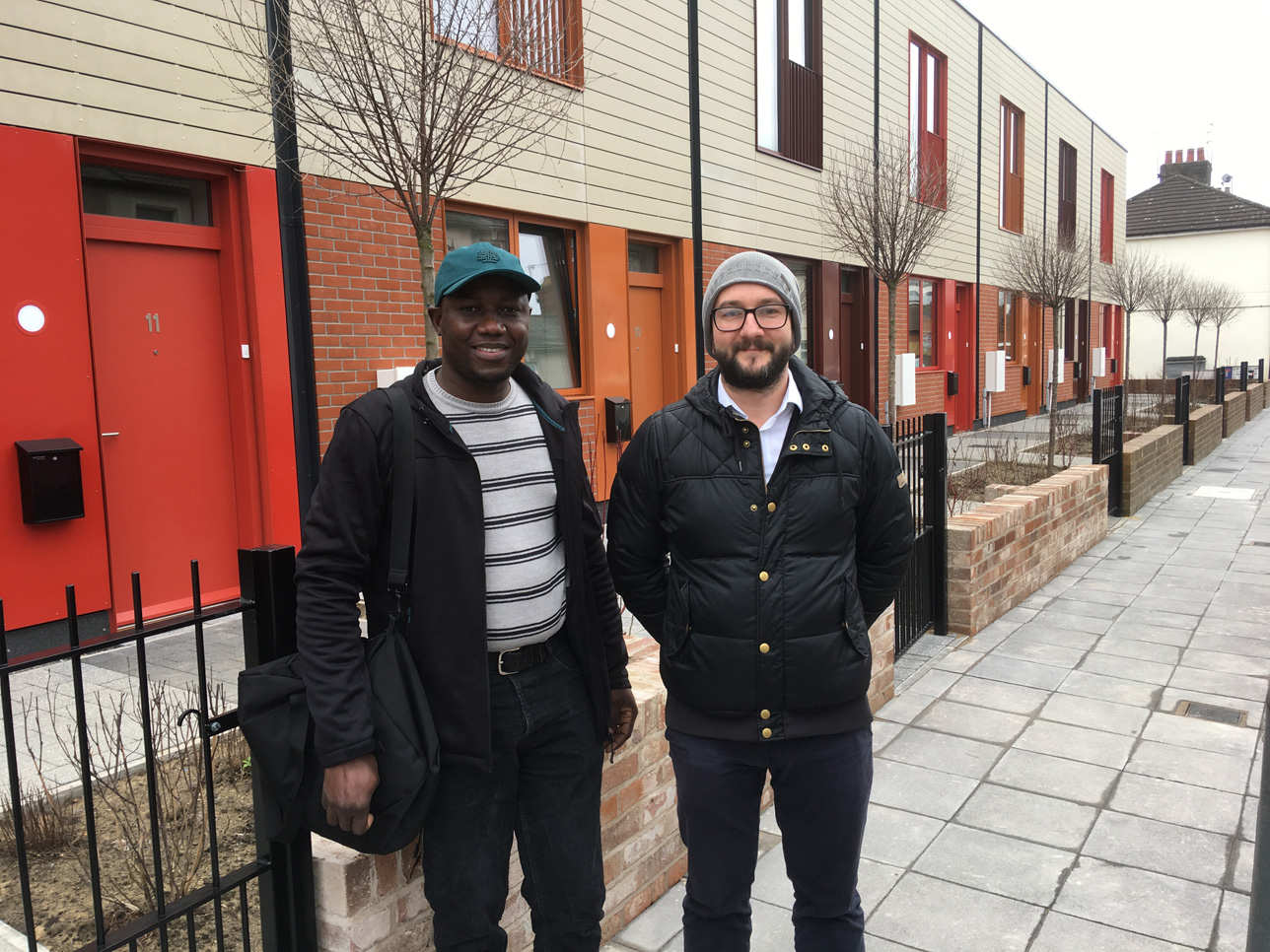Geraint Sewell, Principal Design Manager at Wates Residential, talks to LABM about the challenges surrounding housing decarbonisation, and how working with supply chain partners to embrace new technologies can help local authorities and housing associations decrease emissions from homes during construction and throughout their lifespan.
When it comes to decarbonisation, housing is one of the UK’s most problematic challenges. The residential sector is responsible for 16% of our greenhouse gas emissions, while just 15% of local authorities can say that more than half of their homes are at energy efficiency band C or above. At the same time, despite Prime Minister Rishi Sunak scrapping national housebuilding targets, there is enormous pressure to build new homes. The current backlog is estimated to be around 4.3 million and this crisis shows no sign of slowing.
How then can local authorities address the decarbonisation challenge, when increasing housing provision must also be top priority?
The answer lies with technology
There is a significant opportunity for local authorities to work with delivery partners to find and use new technologies that not only decrease emissions as new homes are built, but also throughout a home’s lifetime.
At Wates, we are transforming our company to become a net zero carbon organisation by 2045. This means exploring the many materials, products and processes that are coming to the fore to enable the development, design and construction of sustainable homes, creating the houses that our country needs without compromising on net zero ambitions.

This includes resource efficient materials with low embodied carbon content or those derived from natural resources, as well as products that deliver significant biodiversity net gains, optimise building efficiency, or help save water. For instance, we have installed Wates Innovation Network partner Recoup’s Waste Water Heat Recovery System (WWHRS) on the majority of our sites in Cardiff. This system uses residual heat from a shower’s wastewater to pre-heat incoming cold water, meaning less energy is used to get the shower to the required temperature.
Another example is the Allume SolShare, being trialled at Brookfield Drive in Cardiff, which equally distributes the electricity generated from solar panels on an apartment block to each individual affordable tenant. Technologies already exist and it is up to the residential sector, alongside local authority partners, to harness them and ultimately benefit from their potential.
Low carbon tech in action
In Cardiff, the Council has ambitions to be carbon neutral by 2030. And, as we deliver our Cardiff Living development programme to provide 1,500 new homes across the city over 10-years, we’re helping them to achieve this goal.
The Aspect Place development, for example, has been designed and constructed using Passivhaus principles to create healthier, more thermally efficient homes that will cost residents — and the planet — less to heat.
By carefully designing the fabric of the buildings, as well as using Mechanical Ventilation Heat Recovery (MVHR), the latest hydrogen ready combi boilers and triple glazing, the houses are effectively protected from the elements, meaning they are far better insulated than a typical UK property and less reliant on the standard heating systems which make up a large proportion of the residential sector’s emissions.
 At Aspen Grove, a development of 214 homes, the Council has made use of low carbon technologies, including electrical vehicle charging points, solar panels, lithium-ion batteries and ground source heat pumps, to achieve CO2 emissions around 90% lower than an average home and 80% lower than a new-build.
At Aspen Grove, a development of 214 homes, the Council has made use of low carbon technologies, including electrical vehicle charging points, solar panels, lithium-ion batteries and ground source heat pumps, to achieve CO2 emissions around 90% lower than an average home and 80% lower than a new-build.
Not only this, but the homes are also connected by a state-of-the-art monitoring system to help residents understand how they can reduce the amount of energy being used on an ongoing basis, such as for heating and hot water, and to take excess power from the grid. At the same time, this allows them to make sure they are creating an environment that is comfortable for them and reduces fuel bills.
Modern methods of construction
As an industry, we also need to pay close attention to the emissions created during the construction of a building. By working with partners to manufacture houses offsite, local authorities have an opportunity to minimise the resources required at the construction site and to deliver more energy-efficient buildings by maximising the performance of the materials that make up the fabric of the building itself.

Modular homes delivered for Cardiff at Crofts Street are 90% more energy-efficient than standard homes built to current Building Regulations and — in recognition of their environmental credentials — have achieved Grade A in Energy Efficiency and Environmental Impact (CO2) ratings. Solar panels and MEV Heat Recovery with electric heating elements mean they’re not required to connect to the mains gas service and will therefore emit significantly less CO2 than a standard home.
As an added bonus, modern methods of construction have allowed the Council to build and install new homes for local people in record time. At Crofts Street, residents moved into their new homes within weeks of them being lowered onto the site.
Tackling these challenges together
Building more homes and tackling climate change might seem at odds with each other, but both are crises we must urgently address. And, by investing in new technologies — be those new methods of building, renewables or smart digital tech — we can make this possible. Building homes can be part of the solution as we move towards net zero.
Header image shows Passivhaus homes built on the site of the former Highfields Centre in Heath in Cardiff, as part of The Cardiff Living project Living project.
In May, Wates Group announced a new partnership with the charity PAPYRUS to train almost 400 people across its company and in local communities to prevent suicide among young people. More on that story here.










